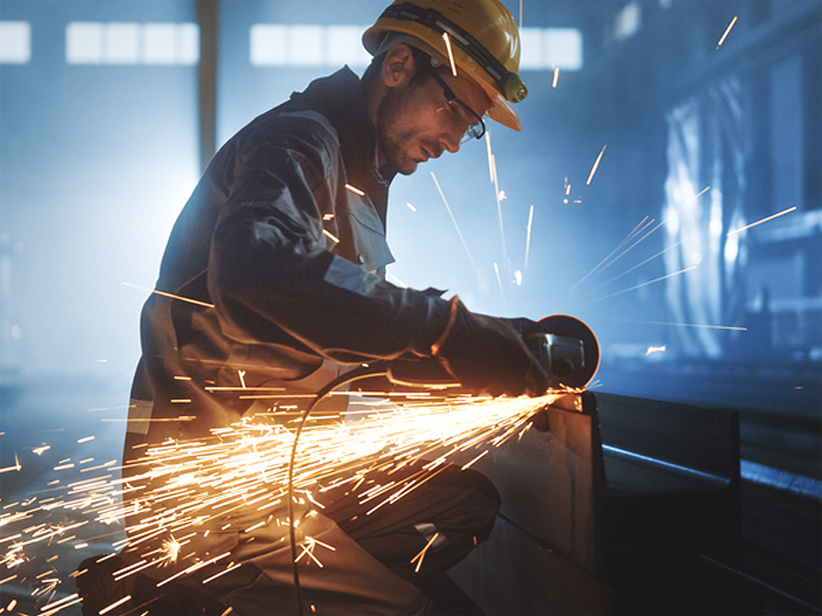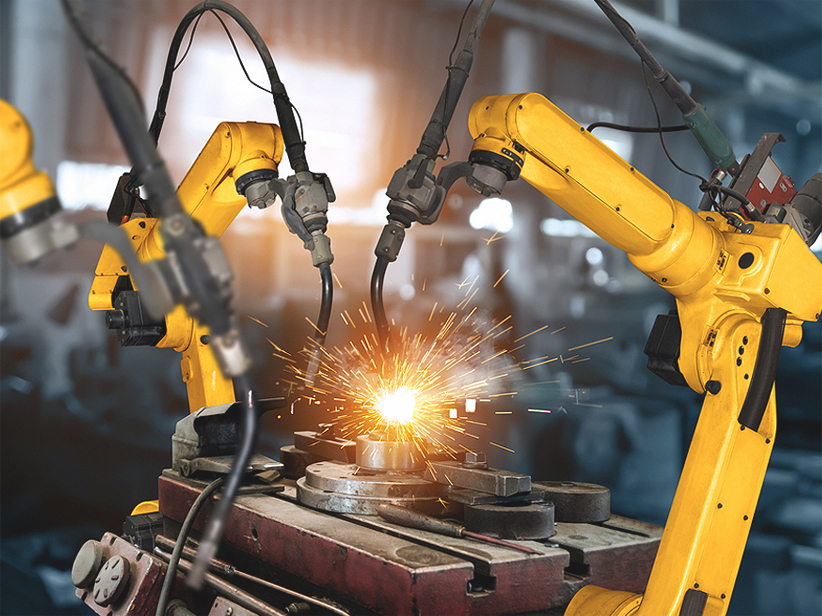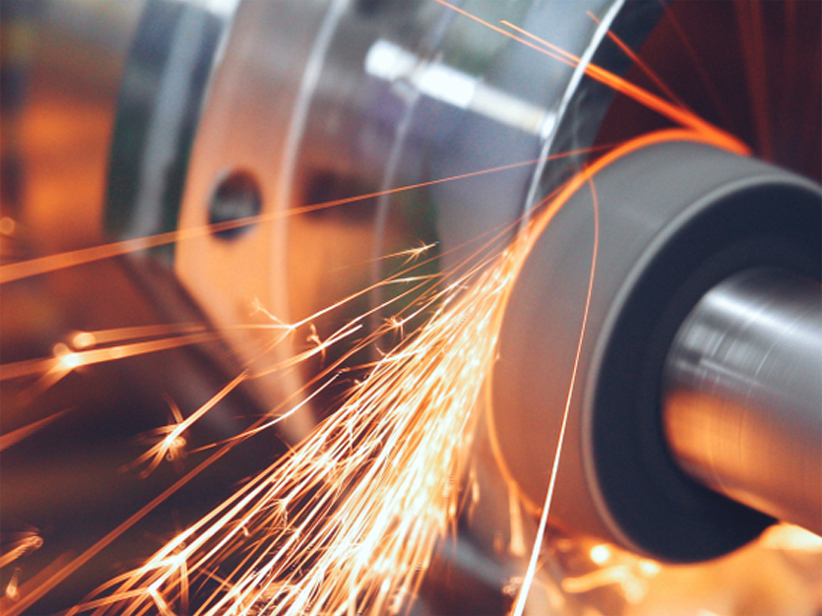Understanding AISI 304: Properties, Applications, and Benefits
Due to its remarkable qualities, stainless steel is a material that can be employed in a wide range of sectors. Manufacturers must select the best sort of stainless steel when working with water and wastewater to prevent issues like corrosion and treatment contamination.
AISI 304 is one of the most widely used grades of stainless steel because of its exceptional resistance to corrosion, robustness, and visual attractiveness. The sanitary qualities of AISI 304 stainless steel are essential for applications involving the treatment of water and wastewater. Because of its non-porous nature, ease of cleaning, and resistance to bacterial development, the material is ideal for use where hygiene and cleanliness are crucial.
You will discover more about the properties, uses, and rationale behind the widespread usage of AISI 304 stainless steel for equipment and componentry in the water and wastewater sectors by reading this blog.
Overview
A minimum of 10.5% chromium is included in stainless steel, a kind of steel alloy that creates an oxide layer on the surface that shields against corrosion and increases durability. AISI 304 stainless steel is one of the best grades available because of its outstanding capabilities in a wide range of applications.
Composition and Properties of AISI 304 Stainless Steel
The main constituents of AISI 304 stainless steel are iron, chromium, and nickel, with trace quantities of silicon, carbon, and manganese. Specific qualities are achieved by carefully balancing the composition of AISI 304. It has outstanding mechanical qualities, including remarkable impact resistance, exceptional formability, and high tensile strength.
Chemical Composition of AISI 304 Stainless Steel
The characteristics and functionality of AISI 304 stainless steel are largely determined by its chemical composition. This grade of stainless steel is extremely attractive in a variety of applications because of special features that are achieved via careful compositional balancing.
The following are the main components of AISI 304 stainless steel:
- Iron (Fe): The basic metal that gives stainless steel alloys their mechanical strength and structural integrity is iron.
- Chromium (Cr): The corrosion resistance of AISI 304 stainless steel depends on the presence of chromium. On the steel's surface, chromium creates the passive layer—a thin, shielding oxide layer that stops oxidation and corrosion.
- Nickel (Ni): Nickel improves AISI 304 stainless steel's resistance to corrosion, especially in acidic situations. It also adds to the hardness and ductility of the material.
- Carbon (C): To increase the AISI 304 stainless steel's strength and hardness, carbon is added in trace amounts. It should be kept low, nevertheless, in order to protect the material's ability to withstand corrosion.
- Manganese (Mn): The addition of manganese improves the strength and ductility of AISI 304 stainless steel, among other mechanical qualities. Additionally, it enhances the material's workability throughout the production process.
- Silicon (Si): During the production process, silicon helps to deoxidise the steel. It also strengthens the material and aids in preventing the development of dangerous contaminants.
- Phosphorus (P): AISI 304 stainless steel normally contains trace levels of phosphorus. It enhances the material's resistance to corrosion and strength.
- Sulphur (S): Sulphur is also found in trace amounts and helps to make AISI 304 stainless steel machinable. On the other hand, a high sulphur level may compromise the material's ability to withstand corrosion.
The Physical Characteristics of Stainless Steel 304 (AISI 304)
When assessing SS 304 stainless steel's (AISI 304) appropriateness for a certain application, its physical characteristics are crucial to take into account. These characteristics offer important insights into the material's performance and characterise how it behaves under different circumstances.
- Resistance to Corrosion: The exceptional resistance to corrosion of AISI 304 stainless steel is one of its main benefits. Even in challenging conditions, the steel is shielded from oxidation and corrosion by a passive oxide layer formed by the high chromium concentration. Because of this, AISI 304 is perfect for applications where exposure to chemicals, moisture, or corrosive materials is common.
- Power and Sturdiness: Because of its exceptional strength and durability, AISI 304 stainless steel is appropriate for a wide range of demanding applications. Because of its great tensile strength, it can bear large loads and resist deformation, guaranteeing long-lasting functionality. Furthermore, AISI 304 has exceptional fatigue resistance, meaning that it can withstand mechanical strain and repeated stress without losing its structural integrity.
- The Capacity to Form and Weld: Because of its great formability, AISI 304 stainless steel may be formed into a wide range of parts and apparatus. It can be bent, rolled, and deeply drawn without suffering from noticeable breaking or distortion. Excellent weldability is another feature of AISI 304 that makes it simple to combine with other stainless steel components or alternative materials using a variety of welding processes.
Heat Resistance of AISI 304 Stainless Steel
Because of its exceptional heat resistance, AISI 304 stainless steel can withstand high temperatures without losing its strength or integrity. Because of its strong thermal conductivity, heat is distributed more uniformly and localised overheating is avoided.
Owing to its exceptional heat resistance, AISI 304 stainless steel is a good choice for situations where high temperatures are present. The material has several characteristics that help explain why it can tolerate high temperatures without degrading noticeably.
The mechanical qualities of AISI 304 stainless steel material may be reduced and its susceptibility to oxidation may be enhanced at temperatures over 800-900°C (1472-1652°F). Specialised heat-resistant alloys could be better appropriate in these circumstances.
AISI 304 Stainless Steel Applications
Because of its exceptional qualities and adaptability, AISI 304 stainless steel is used extensively in a variety of industries. Typical uses for them include:
- Food Processing Equipment: Because of its easy cleaning, corrosion resistance, and sanitary qualities, AISI 304 is frequently utilised in the food business.
- Architectural Structures: AISI 304 is a popular material for architectural elements including railings, ornamental panels, and external cladding because of its attractive appearance.
- Chemical Processing: AISI 304 is appropriate for tanks, pipes, and valves in chemical processing facilities because it can tolerate exposure to corrosive chemicals.
- Medical Equipment: AISI 304 is appropriate for implants, surgical tools, and medical devices because of its corrosion resistance and biocompatibility.
- Automobile Parts: Because of its strength and resistance to heat, AISI 304 is utilised in many vehicle parts, including fuel tanks, trim pieces, and exhaust systems.
- Water and Wastewater Treatment Equipment: These include valves, flanges, pipes, purification equipment, boilers, heat exchangers, compressors, and evaporator boilers.
Applications for AISI 304 Stainless Steel in Water and Wastewater Treatment
Owing to its superior corrosion resistance, longevity, and sanitary qualities, AISI 304 stainless steel finds extensive application in water and wastewater treatment applications. Due to the material's unique properties, it is ideal for a wide range of parts and machinery in these sectors. The following are some particular uses for AISI 304 stainless steel that work well:
- Plumbing and Piping: Water distribution systems, sewage lines, and plumbing installations frequently employ AISI 304 stainless steel pipes and fittings. Because of the material's resistance to corrosion, it will last longer, stop leaks, and require less maintenance.
- Tanks and Vessels: Water storage tanks, wastewater treatment tanks, and chemical storage vessels are commonly built with AISI 304 stainless steel. It is the perfect option for these kinds of applications because of its resistance to chemical corrosion, especially that caused by acids and alkalis.
- Filtration Systems: In order to eliminate contaminants, filtration systems are frequently used in the treatment of water and wastewater. Because AISI 304 stainless steel is resistant to corrosion and can tolerate the mechanical stresses involved in filtration operations, it is used for filter housings, screens, and cartridges.
- Valves and Fittings: Water and wastewater treatment plants use pumps, fittings, and valves made of AISI 304 stainless steel. Reliable functioning is ensured by the material's corrosion resistance and lifespan, even in harsh situations with fluctuating chemical concentrations and pH levels.
- Heat Exchangers: Heat exchangers are essential parts of the systems used to treat wastewater and water. Heat exchanger tubes and plates are frequently made of AISI 304 stainless steel because of their excellent heat conductivity, resistance to corrosion, and simplicity of cleaning.
- Control and Instrumentation Systems: Sensors, probes, and other instrumentation parts required to monitor and regulate water and wastewater treatment operations are made of AISI 304 stainless steel. Measurements are precise and trustworthy because of the material's resistance to corrosion.
AISI 304 Stainless Steel Advantages
AISI 304 stainless steel has the following advantages when used:
- Resistance to Corrosion: AISI 304 offers remarkable corrosion resistance, lowering maintenance costs and guaranteeing life.
- Aesthetic Appeal: AISI 304 is a recommended option for situations where visual appeal is crucial because of its appealing look.
- Hygiene and Cleanliness: AISI 304 is easily cleaned and sanitised, which makes it perfect for sectors like food processing and healthcare where hygiene is essential.
- Versatility: AISI 304 offers versatility in design and manufacturing as it can be produced and altered to meet different needs.
- Economical: Over time, the cost-effectiveness of AISI 304 stainless steel is influenced by its extended lifespan and minimal maintenance needs.
Upkeep and Handling of AISI 304
AISI 304 stainless steel components and equipment require regular maintenance and care to maximise their performance and longevity. The look and corrosion resistance of the material may be maintained with regular cleaning with non-abrasive products and mild detergents. Preventing possible harm also entails avoiding exposure to strong acids or chlorides.
In Summary
AISI 304 stainless steel is a very adaptable material that is well-known for its strength, resistance to corrosion, and visual attractiveness. Due to its special set of qualities, it may be used in a variety of sectors and for a broad range of purposes. Excellent performance and durability are provided by AISI 304, which finds use in medical equipment, food processing, chemical processing, architecture, and automotive components.
Also Read: Stainless Steel - Grade 304 / 1.4301







